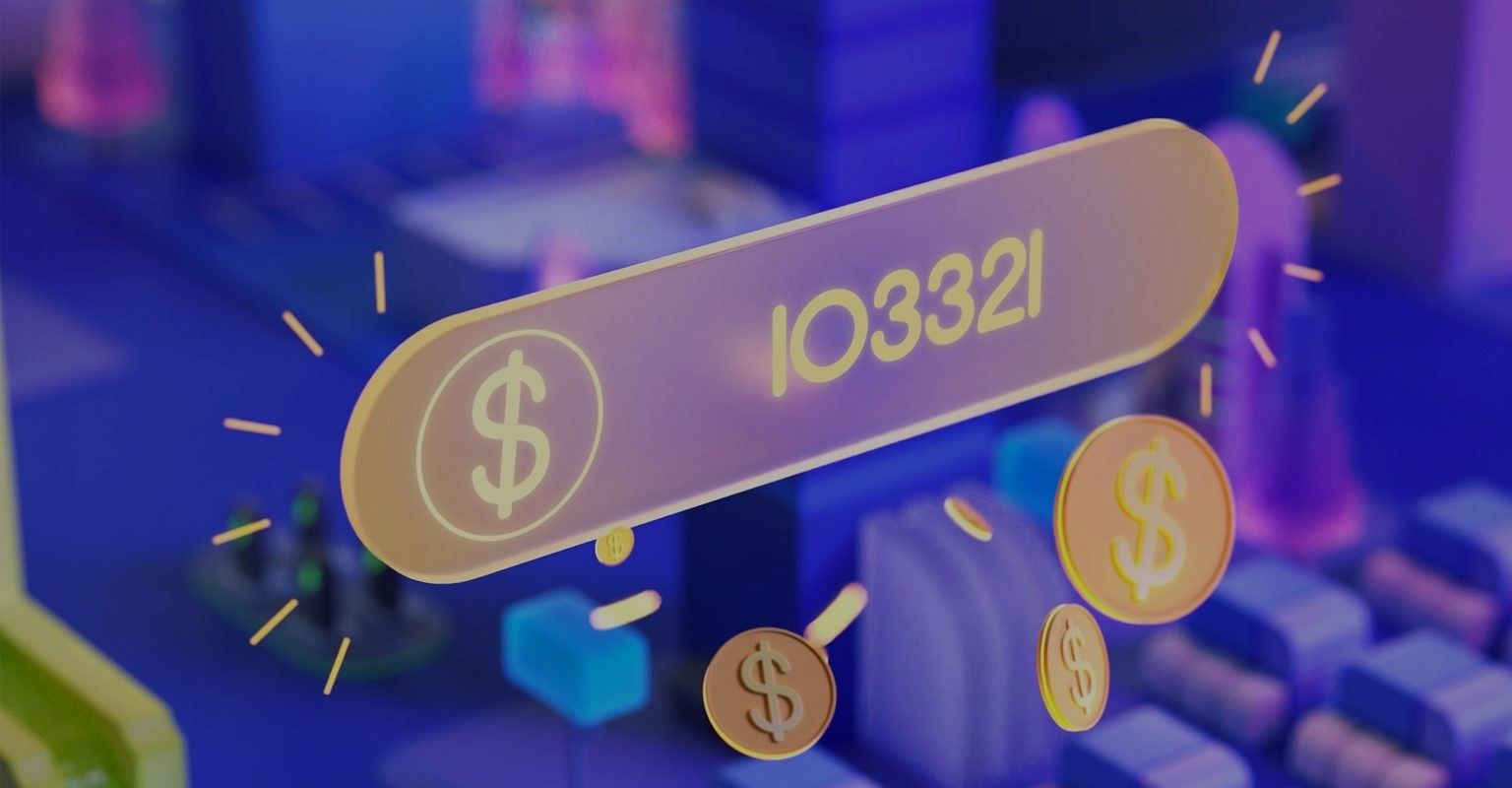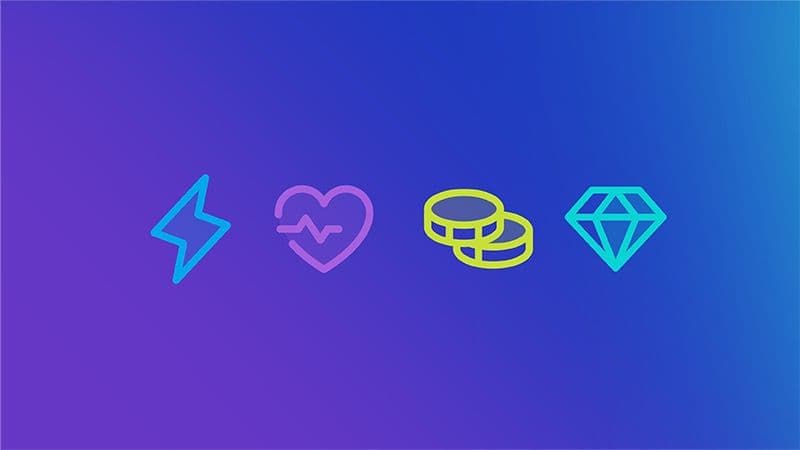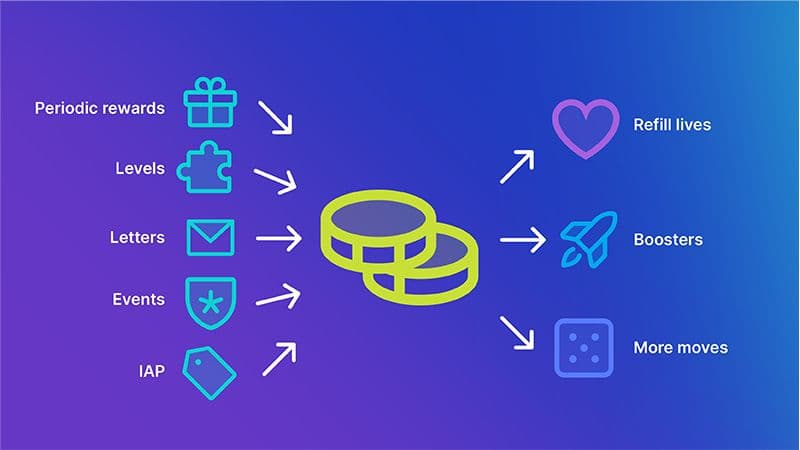
If you can balance your sources and sinks effectively, while keeping your players in the sweet spot between boredom and frustration, they won’t resent your economic mechanics – they will be motivated by them, and your game will be all the better for it.

Consider a merge game that revolves around building an empire of houses where there are two types of resources: Houses and coins. Houses would be the resource that indicated player progression, and coins would be the currency that makes all the transactions in the game possible.
In reality, games feature a very diverse set of currencies according to their complexity. The most common ones are energy, lives, soft currency, and hard currency.
Energy refers to the maximum amount of stamina a player can sustain before losing a life, whereas lives refer to a finite number of total tries before the game ends.
To help develop habit formation, you may have players wait a certain amount of time before their lives are replenished. You can also put a cap on the number of lives that players can have at a time, which limits the length of a play session and encourages players to return.
Finding the right balance between cool-down time and capping energy or lives will be crucial to make players experience your game the way you plan for it.
Soft currencies are the most commonly found currencies in free-to-play games. Players can earn them easily and they are widely available from rewards in the core game loop.
For example, players may earn coins for finishing levels, which they can then use to buy lives, boosters, or other resources. In other cases, players may use such coins as a buy-in method to access certain levels.
Providing enough enticing places for players to spend their soft currency, and finding the right balance between sources and sinks, will ultimately drive monetization.
Hard currencies, often represented by high-value items like gems or gold, give players access to exclusive items and features.
Hard currencies can help you offer flexibility to your players. For example, they can allow players to accelerate their progression by skipping steps. This is an important consideration in game design as it allows for players of different skill levels to feel motivated.
Hard currencies are offered through in-app purchases made with real money, while soft currencies are available through virtual purchases made with hard currency.

When building your economy, you should consider how currencies and resources will impact player progression in order to ensure a fun and smooth experience.
The main currencies of your game will always have a direct impact on progression, as well as certain types of resources. If the goal of your game is to manage a farm, then obtaining farming equipment will be crucial for players to advance.
Other resources, like boosters, may have an indirect effect by making gameplay easier. It’s useful to offer players different options so the game can be enjoyed at different levels of difficulty.

Once you’ve established currencies and understood resources, it's time to identify sources and sinks.
Sources include coins earned in levels, periodic rewards, or prizes for completing events. On the other hand, sinks include using coins to refill lives, buy boosters, or obtain extra moves to finish a level.
Keep in mind that the way you spread rewards and resources across different sources impacts player experience, and that an optimized game economy will have the sum of sources balanced with the sum of sinks.
A strong in-game economy is much more than monetization. It’s the silent force behind player engagement, and it can define how players progress through your game. Check out the first guide in this series to learn how to build a game economy that keeps players coming back for more.
No two players are the same – your economy must account for that to ensure that all players have a positive experience with your game. Check out the third guide in this series to learn how to design with players in mind.

With Unity Economy, you can build a customized in-game economy and offer your players seamless purchases, currency conversion, inventory management, and more.